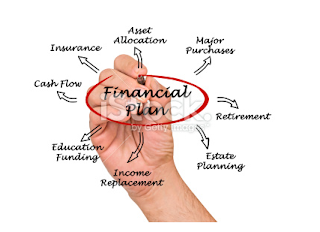Have you spent some time to review your financial position? Are you growing your wealth or getting deeper into debt? Here are a few things to check and compare your worth since the beginning of the year.
1. Debt: Are you reducing your debt or adding more by spending more than what you have? To be debt-free is a top priority to gain financial freedom. Do it now to reduce your debt or else more interest will be added to the outstanding amount. When it is beyond your means you will be made bankrupt.
2. Income: Are you getting more income such as pay increment, bonus, or income from a part-time job? If you want to spend more you have to earn more.
3. Expenses: Do you monitor your expenses? Are you following your budget? Are you spending less than your income? Control your outflow is to live within your means.
No man is rich whose expenditure exceeds his means, and no one is poor whose incomings exceed his outgoings. - Thomas Chandler Haliburton
4. Savings: Are you paying yourself? Is this amount included in your expense budget? There will be no saving if you were to spend first and save later.
It’s not how much money you make, but how much money you keep, how hard it works for you, and how many generations you keep it for. –Robert Kiyosaki
5. Investment: Do not believe in get-rich-quick schemes or gambling. It is the fastest way to get into debt and become bankrupt. Are you investing for the long term like keeping stocks that are paying dividend consistently over the years? Active trading in the stock market is not investing but speculating.
The Stock Market is designed to transfer money from the Active to the Patient. –Warren Buffett
6. Insurance protection: Is your house adequately insured? Is your life policy able to replace your earning power just in case you are permanently disabled or no longer around to look after your family?
7. Net worth: Is the value of your net assets worth more than what you have since the starting of the year? The simplest way to do it is to reduce your debt and increase your savings and build your wealth through investing.
Wealth consists not in having great possessions, but in having few wants. –Epictetus
8. Financial Knowledge: Are you reading and updating your financial knowledge. You will be wiser in financial matters.
An investment in knowledge pays the best interest. –Benjamin Franklin
9. Self-discipline: Are you in control of your money or a slave to it? Think carefully before you part with your money. Resist impulse spending to avoid spending unnecessarily.
You must gain control over your money or the lack of it will forever control you. –Dave Ramsey
10. Skills: Your technical know-how is a great source of wealth. You can create a unique idea to strike gold and make you rich. Leverage the power of technology to enhance your earning power.
If money is your hope for independence you will never have it. The only real security that a man will have in this world is a reserve of knowledge, experience, and ability. –Henry Ford
Conclusion
The ultimate goal of personal finance is financial freedom. Your everyday financial activities should be guided by this goal.











